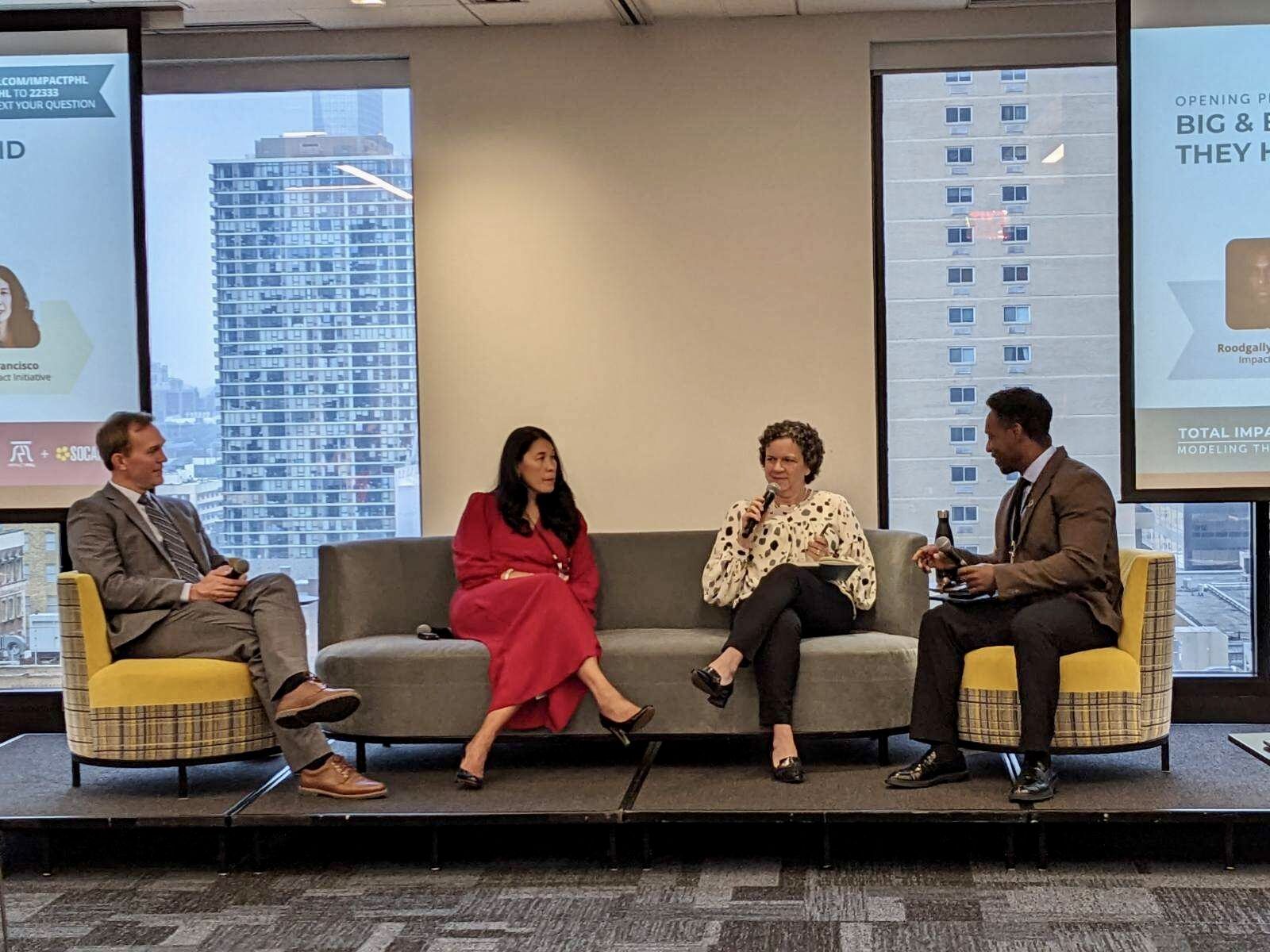Greetings, Agents of Impact!
Featured: Returns on Investment podcast
The ‘Red Ferrari Syndrome’ and other lessons of impact investing’s Varsity Blues scandal (podcast). “When your hedge fund manager shows up driving a red Ferrari,” Imogen Rose-Smith says in the latest episode of ImpactAlpha’s Returns on Investment podcast, “you knew they were no longer paying attention to your portfolio. Instead they had become a professional rich person.” The dramatic fall from grace of Bill McGlashan, co-founder and former CEO of TPG Growth and The Rise Fund, after being indicted in the Varsity Blues college-admissions scandal, Rose-Smith suggests, may say more about private-equity and alternative-investment asset management in general than about impact investing in particular. McGlashan, after all, was CEO of the $13 billion TPG Growth long before he raised $2 billion for The Rise Fund.
“A small group of people have been paid an awful lot of money to manage the assets of public pension and other government funds,” continues Rose-Smith, an investment fellow with the University of California. “They have become extremely rich and they live in a world that is very different than that of the beneficiaries whose money they’re managing.” (In full disclosure, Rose-Smith said the UC is an investor in The Rise Fund.) That there are different rules for the very rich is exactly the sort of issue impact investing seeks to address, she says. “In general, investors get too enamored, ironically, of the wealth of the managers that they have made wealthy. They don’t hold them sufficiently accountable. That has to happen in all investing, including impact investing.”
Read on, and listen in, to “The red Ferrari problem and other lessons of impact investing’s Varsity Blues scandal” in the latest episode of ImpactAlpha’s Returns on Investment podcast. Catch up on all of our podcasts on iTunes, Spotify, SoundCloud or Stitcher.
Dealflow: Follow the Money
i(x) raises $12 million to capitalize an impact holding company. i(x) investments launched in 2016 to offer early- and growth-stage impact companies a more patient alternative to traditional 10-year venture capital and private equity funds. Structured as a permanently capitalized holding company, i(x) makes equity investments from its own balance sheet, freeing it from pressures to exit to meet fund deadlines. “We believe this is an efficient structure for wealth creation and for social impact,” i(x)’s Trevor Neilson told ImpactAlpha. The model’s long-term advantages notwithstanding, many investors have balked at holding companies’ lack of liquidity (see, “Breaking the chains of the 10-year fund is harder than it looks”). i(x) found takers from 30 wealthy individuals and family offices, including Airbnb co-founder Joe Gebbia, and Veronica Chou and Angelica Fuentes, high-net-worth investors from China and Mexico respectively. The three helped bring i(x)’s Series A equity fundraising to $12 million of a $15 million goal. Keep reading.
Unite Us secures $35 million to bridge health and social services. Unite Us was launched in 2013 by a team of military veterans to help vets and their families connect to supportive services, and has applied the same tools to help low-income and vulnerable communities. The company’s software helps health systems and payers, government agencies and community-based organizations manage administrative services, track outcomes, and identify gaps in services that require additional resources. The company raised a $35 million Series B round. “We cannot impact health without ensuring that people have access to basic needs like food, housing and transportation,” said Nancy Brown of Oak HC/FT, which led the round. Health access investment firm Town Hall Ventures and Define Ventures also participated along with existing investors Scout Ventures, Luminate and New York Ventures. Learn more.
PEG Africa raises $25 million in debt and equity for pay-as-you-go solar in West Africa. PEG Africa sells pay-as-you-go home solar systems, targeting the 150 million West Africans who live off the electricity grid. The company says half of its customers in Ghana, Ivory Coast and Senegal earn less than $3 per day and more than 80% lack access to credit and other financial services. The company raised $5 million in equity from returning impact investors and two new investors: Renewable Energy Performance Platform and Total Energy Ventures, the venture fund of oil and gas company Total. The firm also secured $20 million in debt from CDC Group, solar finance company SunFunder and ResponsAbility. Here’s more.
Signals: Ahead of the Curve
How community lenders are boosting the pipeline and diversity of investable projects. The Reinvestment Fund’s research on food systems, for example, increased the collective capacity of community development financiers to lend to grocery stores in food deserts. To lend to real estate developers of color in Detroit, Capital Impact Partners, a national CDFI, partnered with National Development Council and other local lenders to prepare minority developers to take on capital. “Our goal is to align capital with justice,” writes Joe Neri, CEO of IFF, a community lender focused on the midwest that is working with nonprofits serving communities of color in Chicago. That requires “making sure that we have ‘investable’ projects that restore and promote justice wherever there is injustice.” Here’s how:
- Re-engineer financial products. Lenders’ terms and covenants “greatly increases or reduces eligibility for our capital,” says Neri. Community development finance institutions should ask: How would we change our terms and conditions if we applied a racial equity lens to our lending programs?
- Support community organizers. CDFI leaders can serve on local boards and governmental task forces, and provide valuable data. Many community-based organizations lack capacity to organize their resources and collectively call for specific changes in their communities.
- Strengthen the community investment system. A functioning ecosystem requires a community-endorsed vision to shape investments and a robust pipeline of deals and projects to deliver that vision (see, “The Capital Absorption of Places and Community Investment: Focusing on the System).
Agents of Impact: Follow the Talent
Beeck Center’s Sonal Shah joins the Federal Reserve Bank of New York’s new fintech advisory group… U.K.-based Bridges Fund Management is hiring a performance and operations manager for its stronger families initiative… Convergence, the blended finance network, seeks a senior associate or manager of design funding in Toronto. Convergence hosts a blended finance training course May 13 in Washington, D.C…. The European Venture Philanthropy Association hosts an impact investing program in Singapore on June 24, in advance of the Asian Venture Philanthropy Network’s annual conference, June 25-28.
— March 25, 2019.











